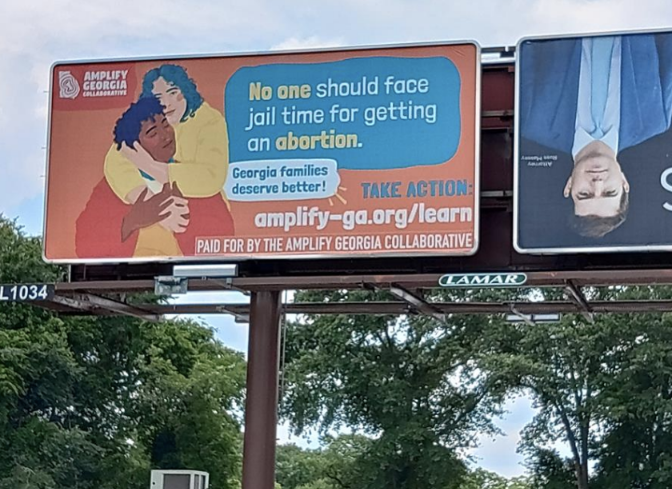
Caption
Billboards and sidewalk decals in Macon, Athens and Savannah shared by Amplify Georgia offer resources to join the reproductive freedom movement and showing support for abortion access that is widely shared, across differences of race, income, ZIP code and political affiliation.
Credit: Contributed


